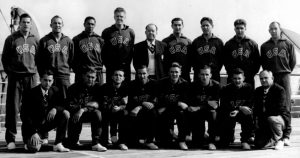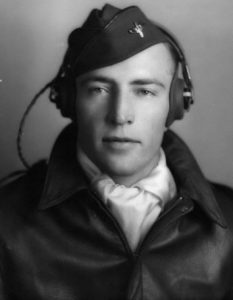The NBA Finals date back to 1947 (when they were known as the Basketball Association of America Finals) and the very 1st NCAA tourney was held in 1939. Olympic basketball competition is even older: it debuted as a demonstration event in 1904 and the men’s version became a medal sport in 1936, with the women finally getting their chance to go for the gold in 1976. The United States has dominated Olympic basketball competition from the start: the men have won 15 gold medals in the 18 tournaments they have participated in during the past 84 years, while the women have won 8 gold medals in the 10 tournaments in which they have competed during the past 44 years. Those of you who were looking forward to the 2020 Olympics opening ceremonies in Tokyo on July 24, 2020 will have to wait an extra 364 days, as the coronavirus caused a postponement until July 23, 2021. Due to the absence of college basketball since mid-March, HoopsHD’s Jon Teitel decided to fill the void by trying to interview as many prior Olympic players/coaches as possible so that you have something to read this summer while not watching the Summer Games. We continue our coverage by chatting with Chris Reinemann about her father RC Pitts winning a gold medal in 1948. RC passed away in 2011 but if he were still alive then today would have been his 101st birthday.
Your father’s 1st name was Robert: who gave him the nickname “RC”, and how did he like it? The legal name on his birth certificate is RC Pitts: his name is initials only. He was the 4th son and his parents took the R from his mother (Rose) and the C from his father (Charles): RC. The government and some companies wanted to give him a name so at times they called him Robert. He never knew why or where they got the name Robert. The only nickname he had was in high school where they called him “Little Pitts” because he had 3 older brothers.
He was born/raised in Mississippi: what made him choose Arkansas? I am unsure why he chose the University of Arkansas. After he helped Arkansas pull out a last minute 21-20 victory over Ole Miss he was mentioned in a local Oxford newspaper called “Rambling Notes Quite Likely More Hollow than Homily”. The column stated, “It was a former Oxford boy who caused most of the trouble: RC (Little) Pitts, who was a whale of a good player for the University High School team a few years back and was allowed to drift away from Ole Miss. He was responsible for throwing for a 15-yard loss and then blocking a kick which another Razorback grabbed and converted into the last touchdown. Unquestionably, the margin of victory was mainly due to Little Pitts.”
He played basketball/football in Fayetteville: which sport was he best at, and which sport did he enjoy the most? He played football and basketball in college and enjoyed them both. He took both sports seriously and worked hard to succeed in both. In the 1942 NFL draft he was drafted in the 17th round by the Brooklyn Dodgers. He was quoted as saying, “I want to look for a coaching job after graduation and if that fails then I will give the pros a try.” He was married so back then he felt that he would make more money if he was coaching rather than playing in the pros. It turns out that he never did either 1 because after graduation he was off to war.
He served in the Army Air Corps in WWII, where he and his crew flew 22 successful missions over Germany: what impact did his service have on him either on or off the court? He is a member of the “Greatest Generation” but the war was not something that he talked about very much. One thing he decided was that he did not want to walk the war so he chose the Army Air Corps, where he became a pilot and flew 22 missions over Germany. He told his grandson that during 1 mission he heard a loud boom under the plane he was flying. He thought that was it and that they had been hit: he was shocked when the plane somehow continued to fly. He faced the fear of death and that was an impact on his life.
He was an AAU All-American with the Phillips 66ers in 1948 and won 3 AAU national titles: what did it mean to him to win all of those titles? It meant a lot to him to win those titles. He was proud of his and the team’s hard work/accomplishments. He always said,” It does not matter the job one does: what matters is that you have done your best.” He did that in all aspects of his life, no matter how small or big the task.
He won a gold medal with team USA at the 1948 Olympics: what did it mean to him to represent his country, and what did it mean to him to win a gold medal? It was a great honor for him to represent his country in the 1948 Olympics and for the USA basketball team to win a gold medal. It was an experience of a lifetime and one that he greatly treasured. Gold medals are given to only a small amount of athletes in the world and he was so very proud to be one of those athletes.
After leaving Phillips he became vice president of a railroad company and then owned his own trucking company: how was he able to follow his on-court success by becoming so successful off the court? He took what he had done in sports and used it to become successful off the court too. BellSouth was an official sponsor of the 1996 Olympic Team and put together a booklet called “A Community of Champions,” which featured people throughout the South and their experiences/reflections to inspire people as the Olympic Games in Atlanta approached. His page said, “I think the most important thing I carried from basketball to business was that every day is a new day and you have to succeed that particular day. That does not mean getting a pot of gold every day but you have to keep moving forward and that means dealing with change. Someone comes up with a good/new move and what usually happens at first is that everybody thinks it is strange or even wrong. Then somebody else tries it, maybe refines it a little, and it becomes accepted. It is an evolution whether it is basketball or business. That process has to take place because change is inevitable and you have to learn how to handle it or you will go under.”
He later participated in the Senior Olympics: was he always an active guy? There was a time in his life when he was busy working/supporting his family and he was not as active as he had been while playing sports in college and basketball with Phillips 66. He started playing basketball with a group of friends after he sold his business and retired. They played in Baton Rouge and also traveled to neighboring states to play. He also competed in the Senior Olympics, finally hanging up his basketball shoes at 85 years old! After almost 70 years of marriage his wife’s health was declining and he wanted to be there for her and help with her care.
He was eventually inducted into the Arkansas Hall of Fame: what did it mean to him to receive such an outstanding honor? He was moved and deeply honored to be inducted into the Arkansas Hall of Fame, which highlighted his career at the university. My parents were married when they were seniors in high school so that my mom could travel with my dad to Arkansas. They always held fondly their time in Fayetteville: the college, coaches, players, and lifetime friends. I know it touched his heart to be inducted/remembered at the university that he and my mom loved so much.
He passed away in 2011: when people look back at his career, how do you think that he should be remembered the most? I am glad that his athletic career is remembered. I know it meant a lot to him to have worked hard and for him and the teams he played on to be acknowledged. All of the medals/awards/experiences/people he met over the years led to quite a life for a young man from a small town in Mississippi. I think that he should also be remembered for his love of his family. He supported/guided/encouraged us with a hand to hold and a shoulder to lean on. He was always there for us no matter what was happening in our own lives. Our family was always close and we always felt loved.





